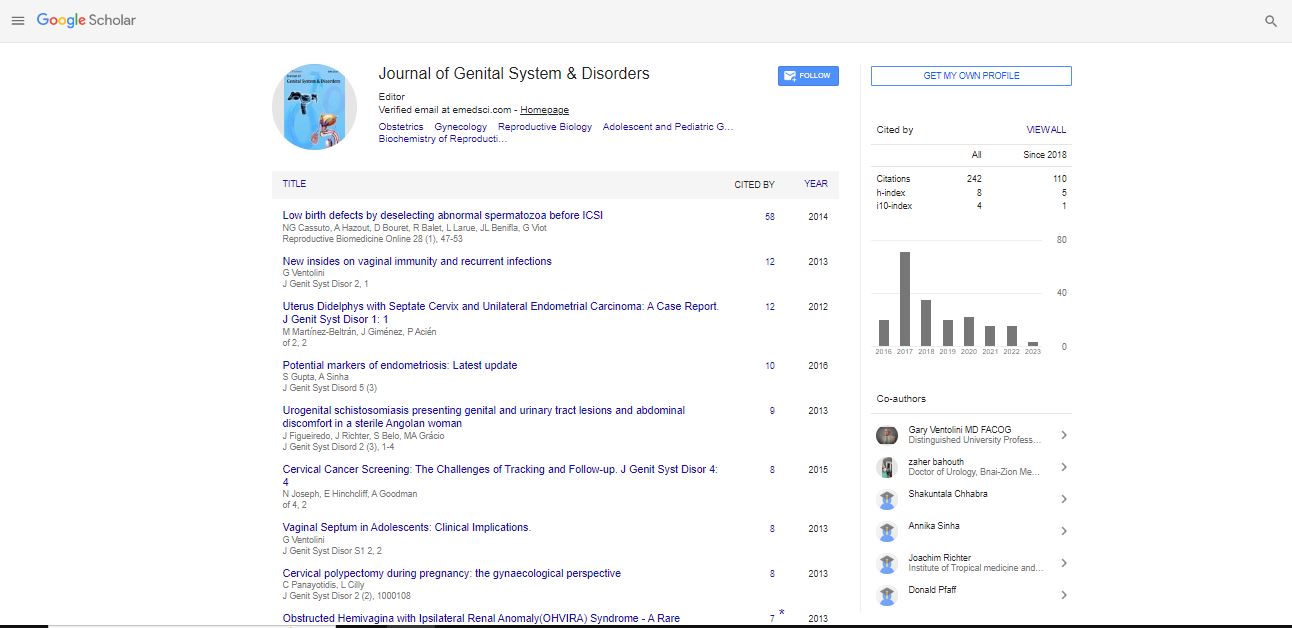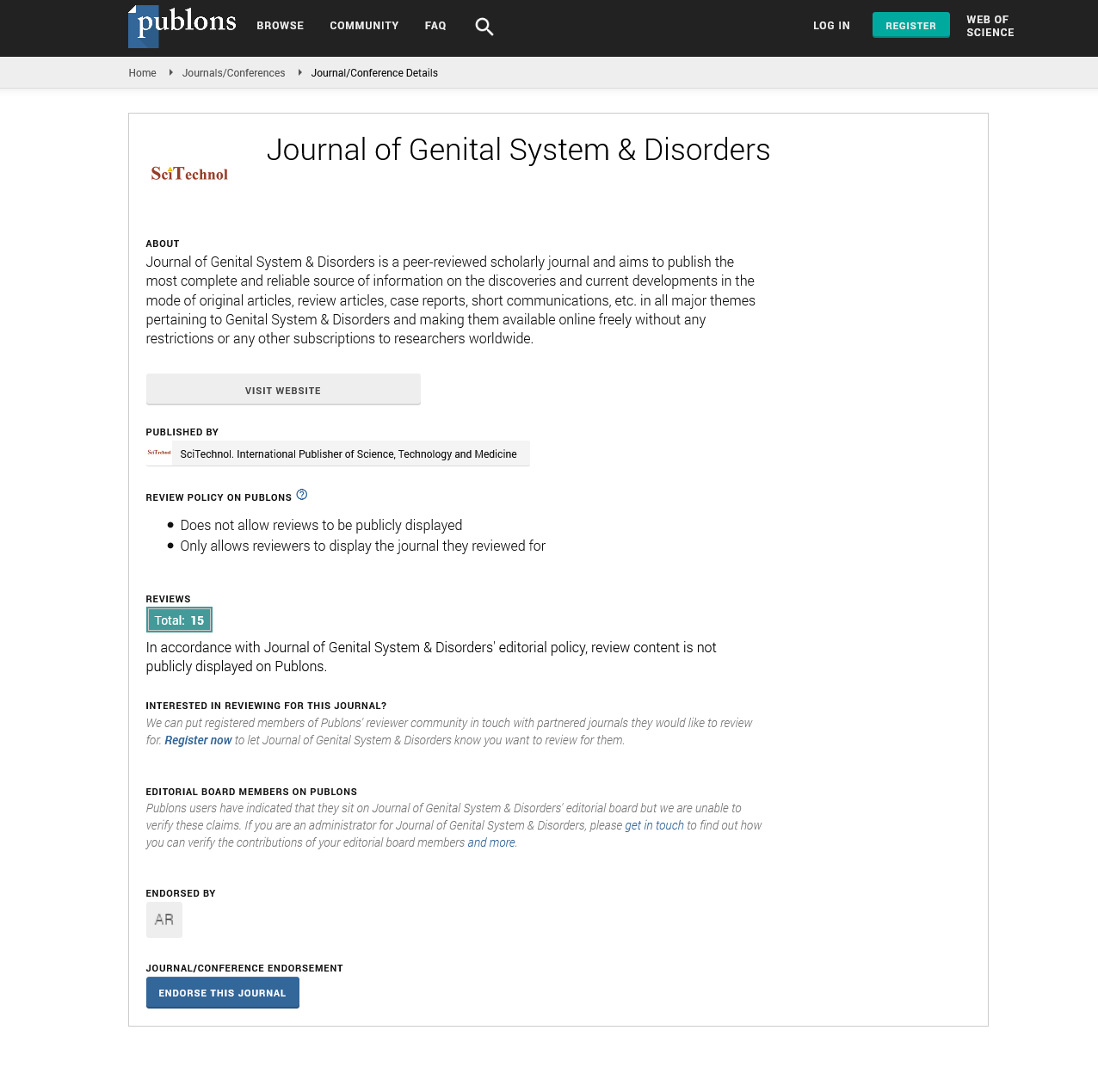Review Article, J Genit Syst Disord Vol: 6 Issue: 3
Factors Influencing the Role of Stem Cells in the Pathogenesis of Endometriosis
Muhammad Ary Zucha1,2* and Pritania Astari2
1Graduate Institute of Medical Sciences, Taipei Medical University, Taiwan
2Faculty of Medicine, Universitas Gadjah Mada, Indonesia
*Corresponding Author : Muhammad Ary Zucha
Department of Obstetrics and Gynecology, Sardjito Central Hospital - Faculty of Medicine, Univeristas Gadjah Mada, Yogyakarta – Indonesia
Tel: +6274 560300, +62813 91664860
E-mail: ary_zucha@yahoo.co.id
Received: March 13, 2017 Accepted: April 12, 2017 Published: April 17, 2017
Citation: Zucha MA, Astari P (2017) Factors Influencing the Role of Stem Cells in the Pathogenesis of Endometriosis. J Genit Syst Disord 6:3. doi: 10.4172/2325-9728.1000179
Abstract
Endometriosis is known as the leading cause of infertility, affecting 10-15% of reproductive-aged women. However, up until now its exact pathogenesis has not yet been established, causing it to be often under-diagnosed and mistreated. Retrograde menstruation theory which was established by Sampson remains the most widely accepted one even though other theories also start to emerge. Recently, it has also been postulated that stem cells play a role in the pathogenesis of endometriosis. This can provide an enlightenment regarding processes which are inadequate to be explained by retrograde menstruation theory alone. Such issues include the controversy on why endometriosis only happens in 10-15% of women if retrograde menstruation occurs in up to 90% of them.
Speculation that stem cells are also shed alongside with the retrograde menstruation blood is strengthen by the discoveries of stem cells marker such as hTERT, OCT-4, SSEA-4, and NANOG. However, such presence may not benefit the disease progression if there is no alteration in the stem cells themselves. Apparently, OCT4, SOX2, and TWIST1 are found to be unregulated in endometriotic tissue and endometrium of endometriosis patient. In addition, researchers have also found dysregulation in the micro-RNA. Moreover, findings also suggest the involvement of bone marrow-derived stem cells in the pathogenesis of endometriosis. They can explain how endometrial tissue may be implanted in distant sites. To sum up, the role of stem cells in the pathogenesis of endometriosis is influenced by many factors, some of which include genetic alterations, sex hormone dysregulation as well as tissue injury.
 Spanish
Spanish  Chinese
Chinese  Russian
Russian  German
German  French
French  Japanese
Japanese  Portuguese
Portuguese  Hindi
Hindi 
